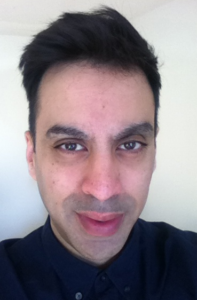 “In any dispute the intensity of feeling is inversely proportional to the value of the issues at stake . . . that is why academic politics are so bitter.”
“In any dispute the intensity of feeling is inversely proportional to the value of the issues at stake . . . that is why academic politics are so bitter.”
Wallace Stanley Sayre
Although I am just starting out, I have gained some experience in the world of academia. I was always drawn towards understanding why the patients we treat are treated the way they are, and where the reasoning for certain diagnostics and management strategies originates from. That was my trigger for entering academia.
Months later, and having been exposed to academic communities both East and West, I am drawn to another issue: academic politics. As a junior in this world of scholarship I am amazed at the conflict and contests that take place—from which diagnostic test is superior, to which intervention strategy is best.
Everyone disagrees and the disagreements can be hostile. I’ve observed that the same debates are repeated with no real consensus as to the right way forward. Every speaker has been in the game for a while and is regarded as an expert or leader in their particular area. I have to admit that this notion is not ideal. Length of time studying a subject may not necessarily correlate with expertise, particularly at a time when learning is moving so rapidly.
If we take technology as an example, school learners today are more in tune with technology than older people. And their ability to learn and communicate online now surpasses many older people too. I feel outdated myself despite being born in the 1980s, which has been deemed the beginning of the digital native era.
There is no single expert or leader in my view. In fact, now that the world is so connected, I recognise the vast number of individuals contributing in their own way. That is what academia should focus more on: recognising the increasing number of contributions and different thought approaches to subjects. Yet too often academia suffers from a degree of rigidity and control, which hinders this recognition from occurring.
I hope that as I continue on we can take steps forward in academia in this regard. Research exchanges are spoken about but rarely acted upon. As the world is now more connected than ever, I wonder whether we need to recognise the value of this more. Rather than contesting each other’s input and ideas, we should value them and appreciate the different perspectives that other people can contribute. Otherwise, we risk standing still and remaining true to the observations of Wallace Sayre.
Neel Sharma graduated from the University of Manchester and is currently based at the Albert Einstein College of Medicine, Montefiore Medical Center, New York.
Competing interests: None declared.
